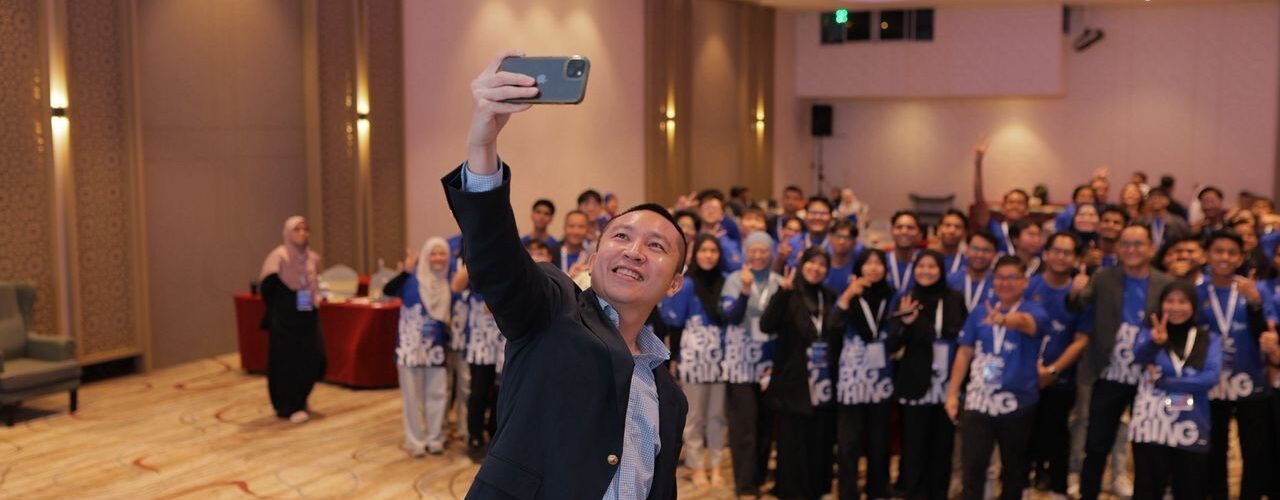Key Takeaways
- Visibility Begins with Storytelling Visibility is survival. People don’t engage with products — they engage with stories. If a brand doesn’t inspire, educate, or entertain, it gets ignored.
- Consistency Outranks Virality Going viral isn’t a strategy — showing up consistently is. Long-term trust and awareness are built through sustained, authentic content that resonates over time.
- Unexpected Connections Are Earned Authentic content has ripple effects — often opening unexpected doors for connection and collaboration.
- The Best Insights Come from Real Experience Expertise is earned, not claimed. Work with people who’ve been in the trenches, not just behind a strategy deck.
- Every Step Matters — Even the Hard Ones Each experience, and each person encountered, shapes clarity and confidence.
From the Final Frontier to the Digital Frontline
According to Richard, he didn’t ace his SPM exams. He added, “In fact, most public universities rejected me.” But like many who found direction in rejection, Richard charted his path. He enrolled in a private college and earned a diploma in Multimedia Technology Engineering. Later, on a MARA scholarship, he went on to complete his degree in Electronics Engineering in the UK.
When he returned to Malaysia, another opportunity beckoned: China. Richard’s sister, who was already working in Beijing, suggested he join her there. With no commitments, he bought a one-way ticket and landed in a country that was busy preparing for the Olympics in a modern tech renaissance.
An Accidental Entrepreneur in Beijing
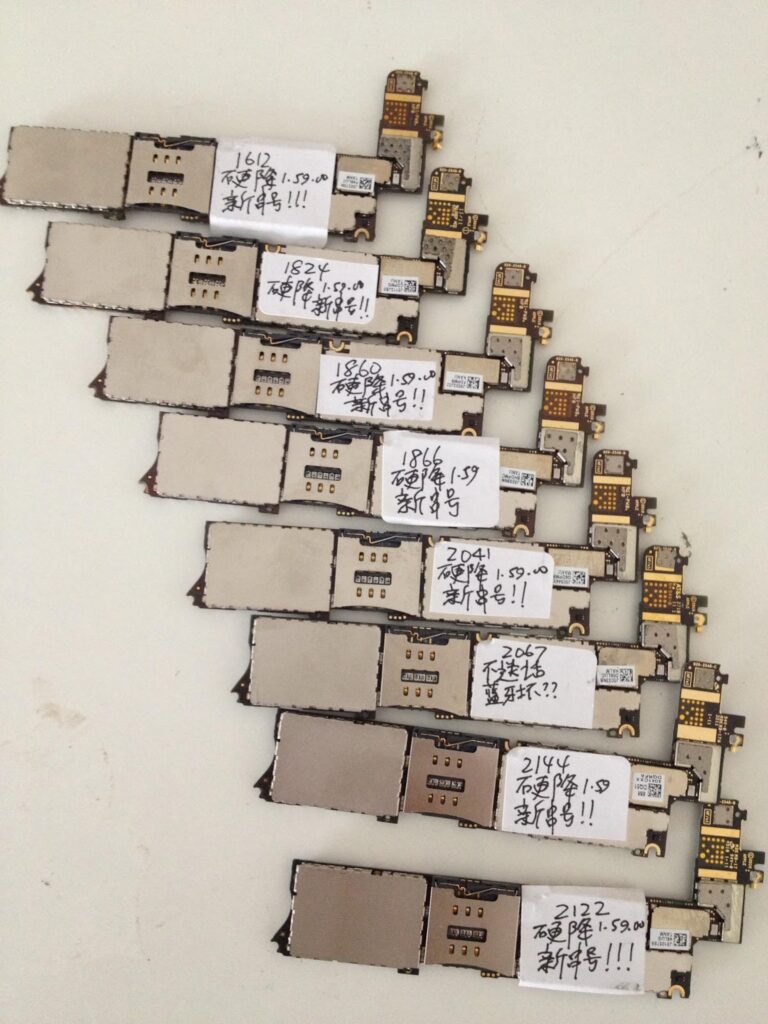
Richard’s early days in Beijing were anything but glamorous. He worked at an international school doing helpdesk IT support — fixing computer issues, solving problems, and dealing with people. Those skills, he would later realise, were critical to everything he built.
He joined a US company that established a call centre in Beijing, contributing to the development of systems, processes, and service-based structures. But it was his broken iPod that accidentally introduced him to entrepreneurship. After discovering a faulty hard drive, he sourced a replacement from Taobao and repaired it himself using YouTube tutorials. Then he thought, ‘If I’m looking for this solution, surely someone else is too.’
No sooner after posting an ad on a local classified site, his first client met him at a Starbucks, bringing two iPods. Richard fixed them on the spot, and the gentleman was ecstatic. ‘It was probably because his entire playlist — his life soundtrack — was in there,’ Richard recalled with a laugh.
That small moment turned into a global business. He built a website offering iPhone and iPod repair tutorials, guides on ‘jailbreaking:)’ and troubleshooting hacks – yes, you heard it first here. His content consistently ranked highly on Google, attracting traffic from around the world. Devices began arriving from Europe, the US, and elsewhere, with customers trusting Richard to fix and return them.
In the process, he unintentionally developed full-stack skills — not just in technology but also in customer service, fulfilment, logistics, and social media. It was his first taste of what it meant to scale something personal into something global.
Coming Home, Starting Over

When Richard returned to Malaysia in 2013, he only knew one person: the property agent who had helped him find a place to live. With some savings from his iPod venture, he settled in the Klang Valley and began connecting with the tech and startup landscape.
Scrolling through Facebook one day, he stumbled on MaGIC — the Malaysian Global Innovation & Creativity Centre. The idea of a government-backed innovation hub resonated with his experiences in China. He didn’t want his submission to disappear into the usual info@ digital void – so Richard did something unconventional: he guessed the CEO’s email address and sent her a direct message.
To his surprise, she replied.
Learning from Life

The email opened the door to his first Malaysian ecosystem-building experience. At MaGIC, Richard worked with startups, entrepreneurs, and partners. From there, he joined Cyberview, where he helped run accelerator and smart city programmes. He joined Malaysia’s Aerodyne, then a fast-growing drone solutions company – recognised today as a global giant in the field.
Looking back, Richard realised that his journey had been shaped by the many people he had worked with —every encounter, every challenge, and every campaign added a new tool to his kit. And somewhere between the hustle of partnership deals and the moments of reflection during lockdown, he understood something deeply personal: it was time to build something of his own.
Three years ago, in 2022, he acted on that instinct. He launched Richard Ker Digital — a social media storytelling agency focused on helping brands and businesses grow their online presence. His formula was simple but deeply thought out: storytelling + creative marketing = visibility that matters.
He focuses specifically on social media because that’s where attention lives. “We live in an attention economy,” Richard emphasised. “People scroll, and they don’t stop unless something makes them.” But when they do stop, Richard said, it’s almost always because of a story.
Reframing What Businesses Think About Social Media
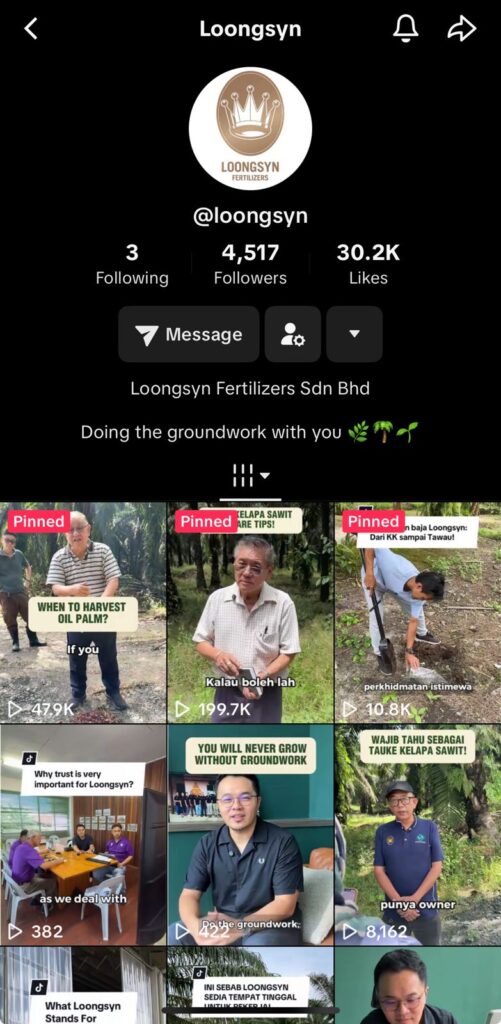
One of Richard’s biggest challenges is helping SME owners unlearn their assumptions. Many assume that social media isn’t the place to talk about serious products — especially B2B solutions, agricultural inputs, or hardware components. Others opine that social media can’t sell.
‘But the truth is,’ Richard explained, ‘people don’t go to social media to be sold to. They go to be entertained, inspired, or educated. If your brand can do one of the three things, you’ve already won half the battle.”
Richard also understands the mental leap business owners often make — from social media to traditional media. ‘The moment they get uncomfortable, they swing back to what they know — newspaper ads, TV, billboards.
‘But even traditional media is now on social media,’ he said. ‘That’s where people discover you first. If they don’t see you online, you might as well not exist.’
Yet, the question always asked: When will this hit my bottom line? For this, Richard has a patient but firm answer: “Every business is unique. But if you’re not seen, you can’t sell. Social media is one of the most scalable tools we have. And it’s not just for leads — it’s for credibility. Brand affinity. Awareness. And ultimately, conversion.”
“People might not become customers the moment they see a post — but do it consistently, and they will remember.”
Consistency, Craft, and Community
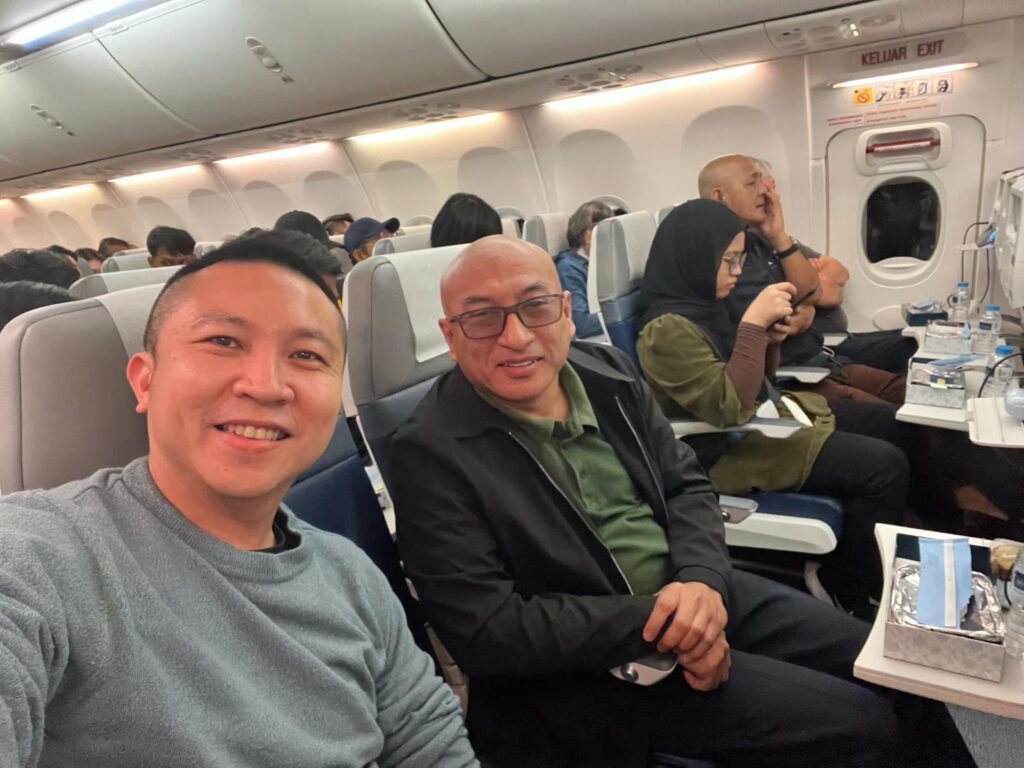
For those beginning their social media journey, Richard offers grounded advice: focus on consistency. Forget shortcuts. Building a brand online means showing up again and again with content that reflects who you are, what you stand for, and the value you bring. Whether through paid ads, organic content, or working with those who’ve done it before, he emphasised strategy over guesswork. “Hire someone with real traction,” he advised. “Don’t just experiment blindly.”
Sometimes, the returns came in the most unexpected ways — like the time Richard noticed a fellow passenger watching The Pursuit of Happyness on a flight. When asked why he chose the film, the man replied, “Someone reviewed it on Facebook… Richard Ker.” Stunned, Richard introduced himself. The man turned out to be Dr. Mohd Azlis Sani, Deputy Director of SEAMEO SEN. That chance encounter sparked a meaningful exchange and potential collaboration — proof, Richard said, that “people are always watching. And what you share may matter more than you think.”
Stories That Move, Brands That Last
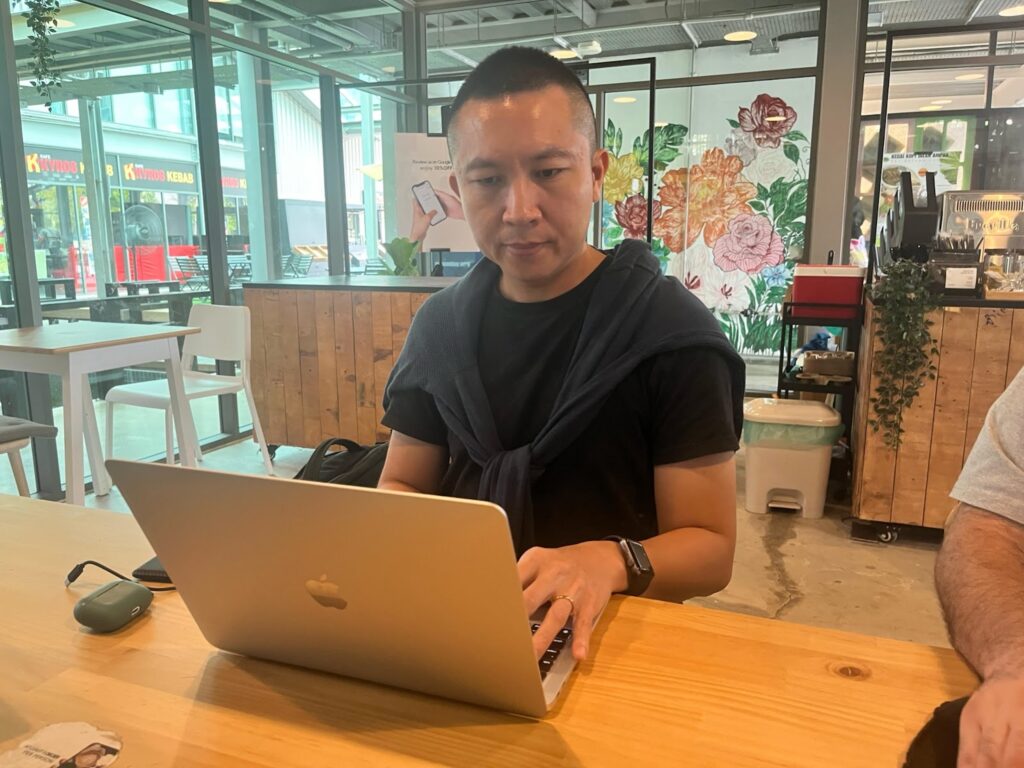
Richard Ker didn’t build his brand overnight. From fixing iPods in a Beijing Starbucks to managing global partnerships and coaching Malaysian SMEs, his journey reflected the very strategy he preached: be seen, be valuable, be consistent.
For SME owners ready to step into social media, Richard offered a straightforward truth: don’t do it alone. “Work with someone who’s done it. Who learns from the field every day. Not just theory, but real traction.” In an age where attention is currency, it isn’t about going viral — it is about being remembered. Being trusted. Being found.
“Because when people finally need something that you offer, the story they recall — might just be yours.”
‘Never Been Told by Richard Ker.’
Richard’s latest project is a podcast called ‘Never Been Told by Richard Ker.’ Never Been Told (NBT) is a storytelling-driven podcast highlighting untold stories of underdog founders, builders, inspiring personalities and creatives across Southeast Asia. Let him know who you think needs to get on the show!



